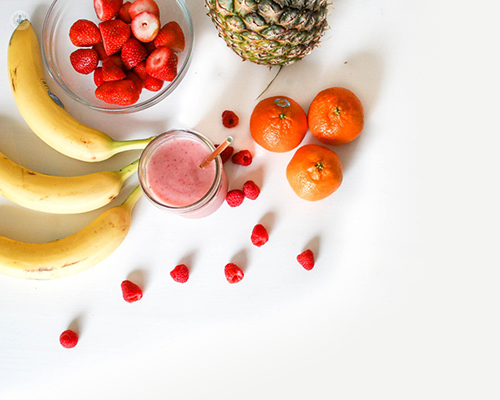8 ways to help prevent bowel cancer
Autore:The UK has one of the highest rates of bowel cancer in Europe, yet the good news is that it is also one of the most preventable cancers. Reducing known lifestyle risk factors and undergoing regular bowel screening are vital tools in reducing the risk of developing bowel cancer. Leading London gastroenterologist Dr Aathavan Loganayagam shares his expert advice on how to prevent or lower chances of experiencing the disease.

1. Get screened
Screening before symptoms become present is important because bowel cancer can develop without any early warning signs. Surveillance may mean regular faecal occult blood testing (FOBT) of the bowel movement to check for invisible blood.
If positive for blood, a colonoscopy is recommended to investigate the cause. Most bowel cancers develop slowly from pre-cancerous growths called polyps. Early detection and removal of these pre-cancerous polyps prevent the development of bowel cancer. Screening every one to two years can reduce your risk of dying from bowel cancer by up to 33%.
Read more by Dr Loganayagam on screening tests
2. Eat a healthy high-fibre diet
Eating a variety of fruit and vegetables and reducing saturated fats (in animal products, processed foods and takeaways) is highly recommended. There is also strong evidence that eating fibre can help prevent bowel cancer by reducing the risk of problems such as constipation and inflammation of the bowel wall. National guidelines recommend two servings of fruits, five servings of vegetables and to include wholegrain foods as a source of fibre with your meals every day.
3. Engage in regular physical activity
There is strong evidence that exercise cuts the risk of bowel cancer and polyps and that a sedentary lifestyle increases it. Get at least 30-minutes of moderate to vigorous activity, five or more days a week.
4. Reduce consumption of red and processed meat
Research has shown a moderate effect of red meat in increasing risk of bowel cancer, especially with processed meat. Charring of meat is best avoided. Try to cut back to having red meat once a week if it's something that you eat regularly and always opt for organic cuts.
5. Don’t smoke
Smokers are more likely than non-smokers to develop bowel cancer and even more likely to die from the disease.
6. Maintain a healthy body weight
Obesity is linked to bowel cancer, especially in men, and evidence points to abdominal obesity (belly fat) as a key factor. Maintaining a healthy body weight for both men and women also reduces the risk of a number of other diseases, including heart disease and diabetes.
7. Drink alcohol in moderation
Heavy drinking may increase the risk of bowel cancer. If you do drink, one standard drink per day for women, two standards drinks per day for men, with two alcohol-free days per week for both, is recommended.
8. Know your family history
Heredity (the genetic transmission of characteristics from parent to offspring) plays a big role in bowel cancer. Up to 20% of people who develop bowel cancer have a relative with the disease.
Find out if your relatives had bowel cancer or polyps (growths in the colon or rectum) that can be precursors of the disease. Also, find out how old they were when they were diagnosed. If there is a strong family history of bowel cancer in your family, genetic counselling can be beneficial.
If you're aged 55 or over, do not hesitate to book for a routine bowel cancer screening test with Dr Loganayagam now.


